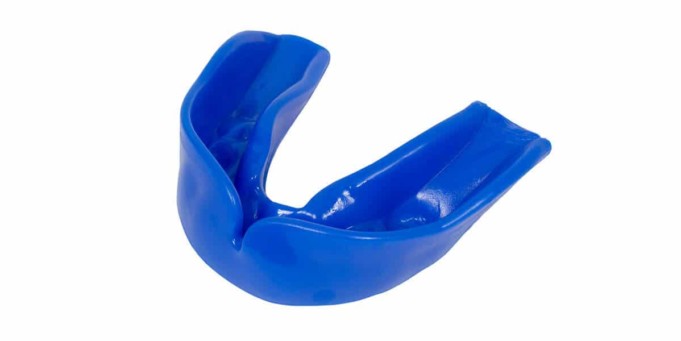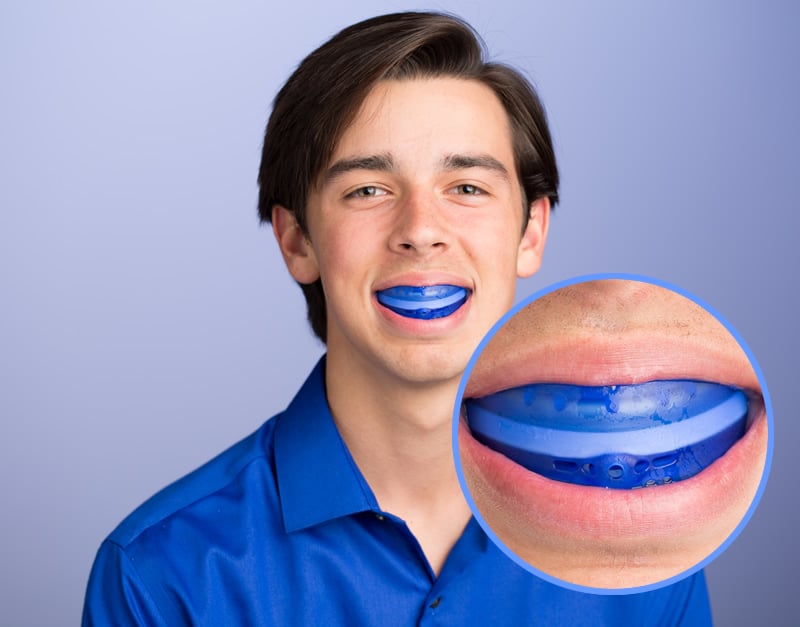What comes to your mind when you look at someone? Well, the first thing that comes to everyone’s mind is how beautifully that person is created. You appreciated God’s creation in a person as you admire their hair, complexion, face and their entire body.
Most importantly, when a person smiles, they display their well-formed white teeth and you say wow! that person was created. But can you imagine what it would be like if the person you admire loses one or more of their front teeth?
Talking, smiling, eating among other things would be affected. People who participate in organized sports or various recreational activities are at a higher risk of losing teeth and if you are among them, knowing how to prevent injuries to your face and mouth ensures you keep smiling all your life.
If you’re still wondering how to protect your teeth, you have come to the right place as we will tell you everything you need to know about mouthguards.
So, what exactly is mouthguard?
A mouthguard, also known as a mouth protector is a thick plastic device that comes in a dental tray shape forming to the shape of the gums, mouth and teeth.
It creates a barrier between the lower and upper teeth thus helping to cushion a blow to the face and this reduces the risk of injuries to the tongue, lips, and jaw, as well as teeth.
A mouthguard also prevents the upper and lower teeth from crushing during an impact which could otherwise break them. If you are an athlete, it’s recommendable to have a mouthguard even if it’s not a requirement in your sports team, after all, it’s better to be safe than sorry.
Types of Mouthguards
Now that we already know what a mouthguard is, we can now go a step higher and learn more about various types of mouthguards. Basically, there are three main types and we will examine each.
Stock mouthguards
Stock mouthguards come in large, medium and small sizes. They fit over your teeth and are the most commonly known and affordable types of mouthguards. They are readily available at drug stores and sporting goods stores and are the best choice for anyone looking forward to covering their top teeth.
They are pre-formed meaning that you can use them straight from the package. Interestingly, they come in various flavors such as bubble-gum and fruit punch though without the sugar. Unfortunately, stock mouthguards are not formed on an individual’s mouth and therefore, they don’t fit very well.
If an athlete opts this mouthguard, he or she will keep on clenching them to stay in place and this can result in difficulty in talking and breathing and tooth and jaw pain. They can also lead to a TMJ disorder which affects the jaw muscles.
Boil-and-bite mouthguards
Just like stock mouthguards, boil-and-bite mouthguards are inexpensive and readily available in most sporting goods stores. They are advantageous because they allow a closer fit to the mouth of the wearer.
Basically, boil-and-bite mouthguards come in one size which you can easily customize to fit your teeth. They are placed in boiling water for a specified amount of time until they are pliable and then placed over the front teeth and bitten down.
The downside of this mouthguard is related to the molding process. If bitten too hard when molding to the shape of your teeth, the plastic becomes too thin and can easily break or may not protect your teeth as it should.
Custom-fit mouthguards
Custom-fit mouthguards are by far the best type of mouthguard that is professionally made in a dental office and provide optimal protection, comfort, and durability.
Basically, dentists make a detailed mold of your teeth and send it to a lab that specializes in the creation of dental wear and the mouthguard is made using a material that your dentist specifies to fit your needs.
The custom-fit mouthguard is created for the structure of your mouth and teeth meaning that it doesn’t lose its shape and provides protection where needed. They are also long-lasting and durable, though expensive.
Functions of mouthguards
- Mouthguards act as a buffer between the soft tissues found on your lips, cheeks and teeth and thus prevent bruising and laceration during an impact.
- Mouthguards protect opposing teeth from seismic contact with each other.
- They prevent tooth fractures as they cushion the teeth from direct frontal blows.
- They provide positive reinforcement and thus prevent neck injuries.
- They have a psychologic benefit and the wearer feels more confident, comfortable and aggressive to give the best especially in sports believing that their teeth are protected.
- They act as shock absorbers between the lower and upper jaws thus play a huge role in reducing neurologic injury.
- Without a shadow of a doubt, mouthguards give support to the adjacent teeth by filling edentulous spaces and this makes it easy to remove prostheses during athletic competition.
Uses of mouthguards
- Protection from injury – When participating in any sports, athletes usually encounter mouth injuries such as soft tissues of the mouth being damaged which can eventually lead to permanent teeth damage. However, a mouthguard protects the mouth and keeps your teeth intact.
- Prevents clenching and grinding – Teeth clenching, and grinding are oral habits that a patient performs while sleeping and may cause severe damage to the teeth. The good news is that a mouthguard prevents the teeth from grinding or clenching together and this protects them from excess wear and tear.
- Treatment of TMJ disorder – TMJ is associated with clenching, grinding or misaligned jaw and a mouthguard can help in these cases.
- Treating obstructive sleep apnea – Sleep apnea is a condition where the breathing pattern is affected throughout the night. Basically, patients with sleep apnea require a breathing machine at night but a mouthguard can solve the breathing difficulty as it ensures the jaws and teeth are in alignment to keep the patient’s airways open for effective breathing.
Bottom line
It is the desire of each and every person to have their teeth intact as this ensures you eat, smile, and talk effectively. However, if sporting is in your blood, it goes without saying that accidents do happen, and you should take advantage of mouthguards to reduce the risk of mouth-related injuries to your tongue, lips, and soft tissues of your mouth.
Most importantly, mouthguards prevent nerve damage to a tooth, broken teeth, as well as tooth loss. Therefore, if you want to play your favorite sports with confidence or you have a sleep disorder, a mouthguard is what you need.













